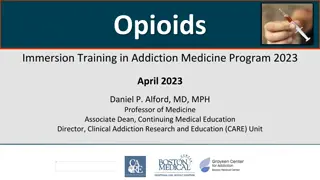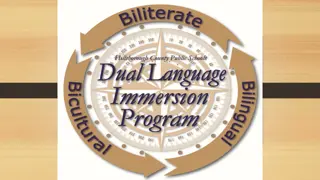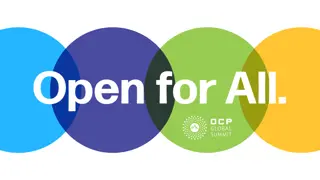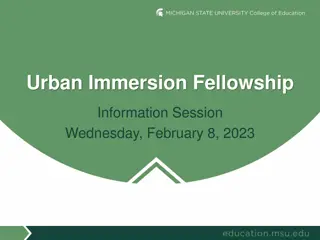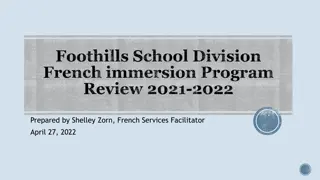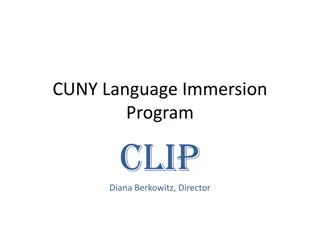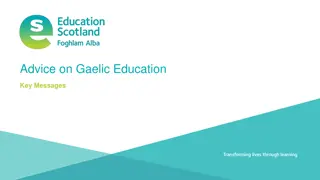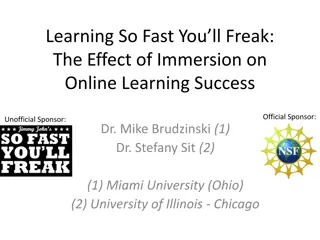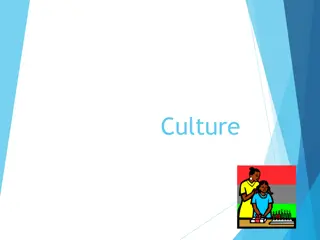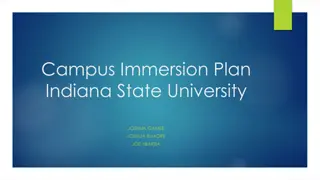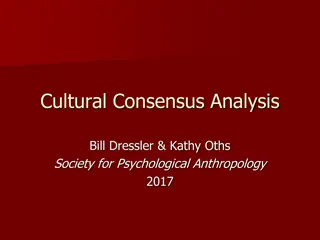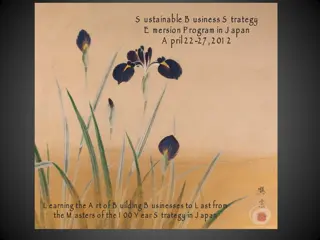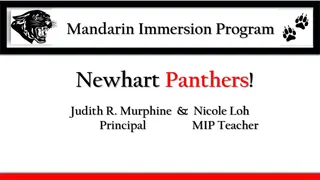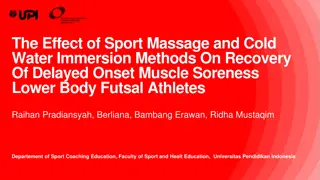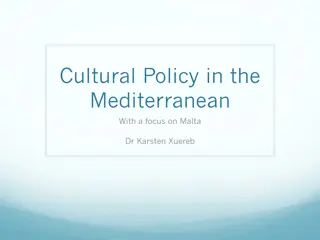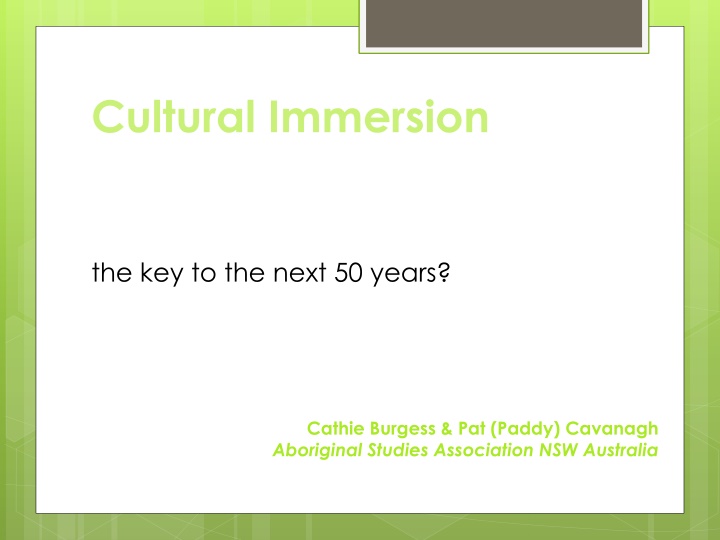
Cultural Immersion Impact: Transformative Aboriginal Education
Explore the profound impact of cultural immersion programs on education, as demonstrated by the Connecting to Country Program. Discover the positive responses, increased knowledge, and changed teaching approaches reported by participants. Wenger's conceptual framework sheds light on the transformative potential in Aboriginal education, emphasizing modes of belonging and communities of practice.
Download Presentation

Please find below an Image/Link to download the presentation.
The content on the website is provided AS IS for your information and personal use only. It may not be sold, licensed, or shared on other websites without obtaining consent from the author. If you encounter any issues during the download, it is possible that the publisher has removed the file from their server.
You are allowed to download the files provided on this website for personal or commercial use, subject to the condition that they are used lawfully. All files are the property of their respective owners.
The content on the website is provided AS IS for your information and personal use only. It may not be sold, licensed, or shared on other websites without obtaining consent from the author.
E N D
Presentation Transcript
Cultural Immersion the key to the next 50 years? Cathie Burgess & Pat (Paddy) Cavanagh Aboriginal Studies Association NSW Australia
The Connecting to Country Program A 5-day intensive professional development program targeting Principals, New Scheme and newly appointed teachers in 300 targeted schools: a 3 day cultural immersion program conducted by local AECGs; AND a subsequent 2 day program provided by DEC's AECE
Data Analysis Quantitative data: 357 participant evaluations (AECG) Qualitative data: individual interviews and focus groups: 54 participating teachers
Impact of Cultural Immersion 98.2% positive response from participants with no prior learning 97.5% of ALL participants increased knowledge & understanding 90.5% reported adopting new approaches to teaching history & culture 81.1% reported changed approaches to teaching Aboriginal students 83.8% reported enhanced confidence and understanding in developing relationships with Aboriginal parents & community 94.6% would recommend this program to other teachers
Wengers conceptual framework social learning systems (1998, 2000) Demonstrates how two perceivably different and conflicting communities can become a community of practice transformative potential in Aboriginal education Modes of belonging Communities of practice
Analysis: modes of belonging Engagement Imagination Alignment It was a very inclusive program. I felt befriended and I think every Australian should attend something like this --- it was so effective in building bridges. And I loved being with my Aboriginal colleagues in an informal setting where everyone was on the same level and working together .
Analysis: communities of practice Joint enterprise Mutuality Shared repertoire The excursion to Mootwingee was a real shared experience.... It was something to build a relationship on and it helped me make real connections it was a platform for me to have a shared story, walking around together, chatting about life , home and kids. It was like a family putting on a demonstration of their strength . a happy party .
BENEFITS of learning through a social process Perceptions of Other community changed Shared purpose and brokering relationships Empowering teachers and impact on pedagogy
THE CHALLENGE of the next 50 years? Explicating theory awareness of practice Transforming good learning to good teaching Bringing cultural immersion into the classroom

